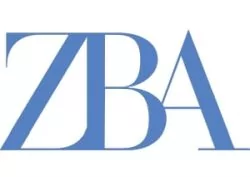Introduction
In Indian finance market, guarantee or comfort from promoters is a crucial factor for creditors in lending transactions - primarily because promoters of Indian companies have significant say in all decision making and a large percentage of the economic ownership. Under section 128 of the Indian Contract Act, 1872, liability of a guarantor is clearly co-extensive with the principal debtor, so a lender can proceed against both guarantor as well as borrower/principal debtor simultaneously.
Issue
However, when this was tested under the Insolvency and Bankruptcy Code, 2016 (Code), NCLAT in Dr. Vishnu Agarwal v. Piramal Enterprises Limited (Appeal (AT) Insolvency No. 346 of 2018) (Piramal) took a diametrically opposite view and held that for the same debt, claims cannot be filed by a financial creditor in 2 separate insolvency proceedings. Consequently, after the Piramal judgment, lenders were unable to proceed against both guarantor and borrower under the Code – somewhat of an anomaly given that they lent on the basis of the guarantors corporate strength to support their initial lending. Importantly, many resolution professionals relying on Piramal rejected claims filed by financial creditors in insolvency proceedings of corporate guarantors, if claims were also filed in the insolvency proceedings of the borrower for same debt. This created an imbalance in the finance market and lenders approached the Supreme Court for clarity on law. The appeal before the Supreme Court is at present pending.
In the meantime however, NCLAT has effectively reversed the Piramal decision in 2 subsequent cases:
- State Bank of India v. Athena Energy Ventures Pvt. Ltd. (Company Appeal (AT) (Ins.) No. 633 of 2020 (Athena Energy) dated 24 November, 2020. It disagreed with the findings of Piramal and held that a lender can simultaneously proceed against principal borrower as well as guarantor under the Code.
- Edelweiss Asset Reconstruction Company v. Gwalior Bypass Projects Ltd. (Company Appeal (AT) (Ins.) No. 1186 of 2019) (Gwalior Bypass Projects) order dated 8 March 2021. NCLAT order dated 8 March 2021 in Gwalior Bypass Projects reaffirmed the view in Athena Energy and held that "We do not find that there is bar for the Financial Creditor to proceed against the principal borrower as well as Corporate Guarantor at the same time, either in CIRPs or file claims in both CIRPs".
- In our view, this is the correct interpretation and in line with the Indian Contract Act, 1872, and well established jurisprudence on this aspect. Lenders can proceed against a principal borrower as well as corporate guarantor at the same time, either by: (a) filing of section 7 applications; and (b) filings their claims also in both CIRPs. The law therefore now clearly sets out that if a creditor receives any part of its debt due from the borrower/guarantor in that respective CIRP, that this should be taken note of and adjusted in the other CIRP. So this leaves no doubt that there can be room for adjustment. The judgement also clearly states that it does not agree with the Piramal order.
Conclusion
To conclude, whilst it has taken some time to get this clarity, these judgements are a very positive development and provides much required certainty for lenders. We believe that this should pave the way for legal clarity and for lenders to take decisions to proceed against guarantors where there are pending CIRPs against borrowers.
The above is a generic analysis and should not be regarded as a substitute for specific advice based on the facts of a client's objectives and specific commercial agreements reached. Please do reach out to us at mail@zba.co.in for any queries.

